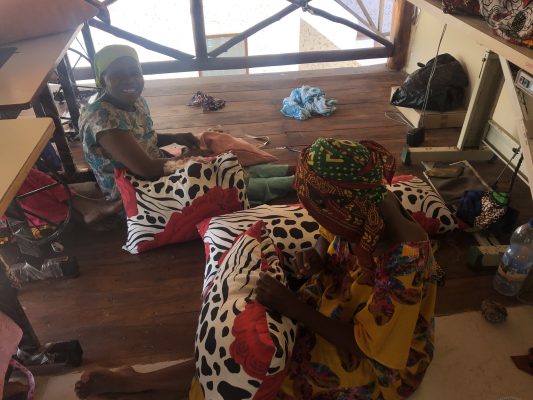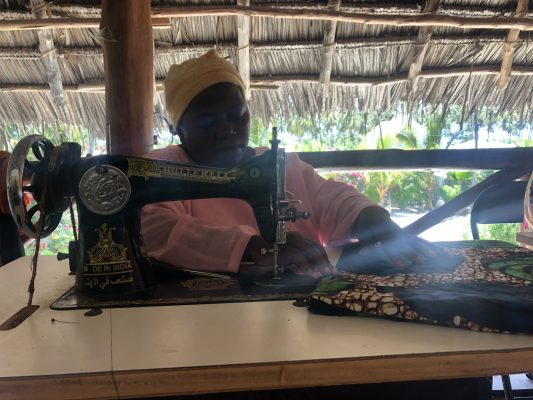By Rebekah Davis
Situated on a narrow street in the middle of Stone Town, the largest city in Zanzibar, Safi Sana pops out as a striking boutique amidst the hundreds of other stalls. Bags, pants and tablecloths line the shelves, all radiating with bright African prints. You can tell with a single glance that this shop is not like the others. The stitching is remarkable, and the products are of amazing quality.
These products were made about 30 miles away, on a beach in a small village called Jambiani. I sat down with the co-founder Naomi Nebel to learn more about this remarkable project.
“We started this women’s cooperative two years ago. My mom, Susanne, is a retired development worker and she always wanted to do a project of her own. We greatly admired African textiles and wanted to create something regional since we thought these fabrics may interest tourists; they’re incredibly eye-catching and they are very foreign to Westerners. She wanted to focus on the women here because they lack the freedom that we are used to back home. The culture here doesn’t promote women taking on jobs and if a woman gets a divorce she is under the mercy of her husband if he decides to financially support her or not. Many of the women are neglected by their husbands and we provide a salary to all of our co-op members to support them and give them independence” she explains.

I ask Naomi to recount her favorite story of one of the co-op members. “One woman had a sick child and was living in difficult conditions with her family. She seemed to have a depressed state of mind. When she started working with us her attitude and personality changed for the better; she has much more hope and her child is now healthy again. The impact is very real” she narrates.
We climb the small, steep wooden staircase to the tiny workshop where two women sit at a sewing machine, making tote bags, and two women sit on the floor, stuffing pillows.
“We started out with crowdfunding to get our first supplies within our community in Vienna, Austria” she says as we watch the women work. “We engaged volunteers from the Austrian fashion design school to help with the design of products. The hardest part of the project was quality control, but the best moment was when we opened our own store. We invited all the women into Town and celebrated reaching our goal; we felt very positive about our future.”

As we descend the stairs back to the hot, sandy beach, Naomi offers some advice to aspiring social entrepreneurs: “If you do crowdfund, it’s important to let people know how their donation will make an impact and have a clear, realistic goal in mind. Be patient and give the product some time to develop on its own.”
Safi Sana hopes to add more designs to its store and even launch an online shop in the future.
To find out more about Safi Sana, check out their Facebook page.


